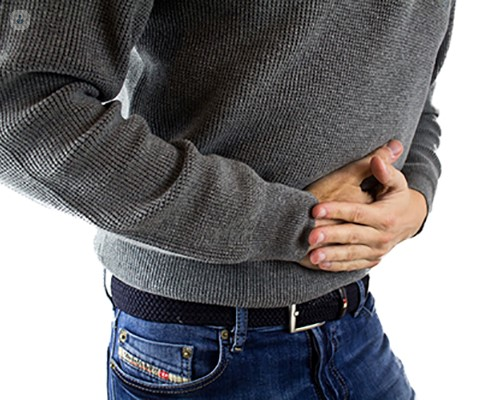Understanding gallstones: Insights, symptoms, treatment, and prevention strategies
Written by:In his latest online article, Mr Muhammed Hanif Shiwani gives us his insights into gallstones. He talks about the common symptoms, treatment, recovery process and dietary or lifestyle changes that could help prevent gallstones.

What are the common symptoms of gallstones?
In general, patients are referred due to either the presence of gallstones in the gallbladder or experiencing pain in the upper right part of the abdomen. Upon investigation, it is determined that these patients have gallbladder stones. The gallbladder is an organ located beneath the liver on the right side of the abdomen, shaped like a pear, and it stores bile originating from the liver.
Bile, essential for digesting and absorbing food, contains salts that, in some cases, can precipitate into a gravel-like material, gradually forming small stones that may grow larger over time. The presence of these stones in the gallbladder can lead to pain and complications. When the gallbladder contracts to release bile for digestion and absorption of food in the small intestine, stones may attempt to pass through the ductal tube. If they are unable to pass through, the gallbladder exerts additional pressure, causing pain, often accompanied by nausea and vomiting.
Stones in the gallbladder can also result in infection and inflammation, known as cholecystitis. This condition may necessitate antibiotic treatment, and severe cases may require hospitalisation. Occasionally, stones may travel through the ductal tube and become lodged in the common bile duct, leading to complications such as infection and jaundice. Infections in the bile duct can be serious and potentially life-threatening, requiring hospital admission, intravenous antibiotics, and further treatment.
Should the stones pass into the bowel through the bile tube, they may irritate and inflame the pancreas gland, causing pancreatitis. This condition, too, demands hospitalisation and specialised care. These complications underscore the serious impact that gallstones can have on a patient's health.
Can gallstones be treated without surgery?
The preferred treatment for gallbladder stones is the removal of the gallbladder, rather than retaining it. In the past, shock waves were used to disintegrate gallstones, similar to the approach taken with kidney stones. However, unlike the hard composition of kidney stones that can be shattered, gallstones are softer and don't respond well to this method. Even if the stones are broken down, they may still pose serious issues if they pass through the bile tube. Consequently, this treatment is no longer employed, and the gold standard for gallbladder stone management is surgical removal, often performed through minimally invasive keyhole surgery.
What is the recovery process like after gallbladder surgery?
The recovery process for gallbladder surgery is typically swift, with many patients returning to normal activities within two weeks. Complications are rare, but some individuals may experience discomfort or issues around the belly button area where the camera was inserted during surgery.
Are there any dietary or lifestyle changes that can help prevent gallstones?
Regarding preventive measures, dietary and lifestyle changes can be beneficial in reducing the risk of gallstones. While there is no foolproof method, adopting a low-fat diet and consuming smaller, less fatty meals may help minimise gallbladder stimulation and decrease the likelihood of gallbladder pain. However, it's important to note that this approach is not universally effective, as gallbladder pain can occur even in the absence of significant fat intake or large meals.
Mr Muhammed Hanif Shiwani is an esteemed general and laparoscopic surgeon with over 25 years of experience. You can schedule an appointment with Mr Shiwani on his Top Doctors profile.


